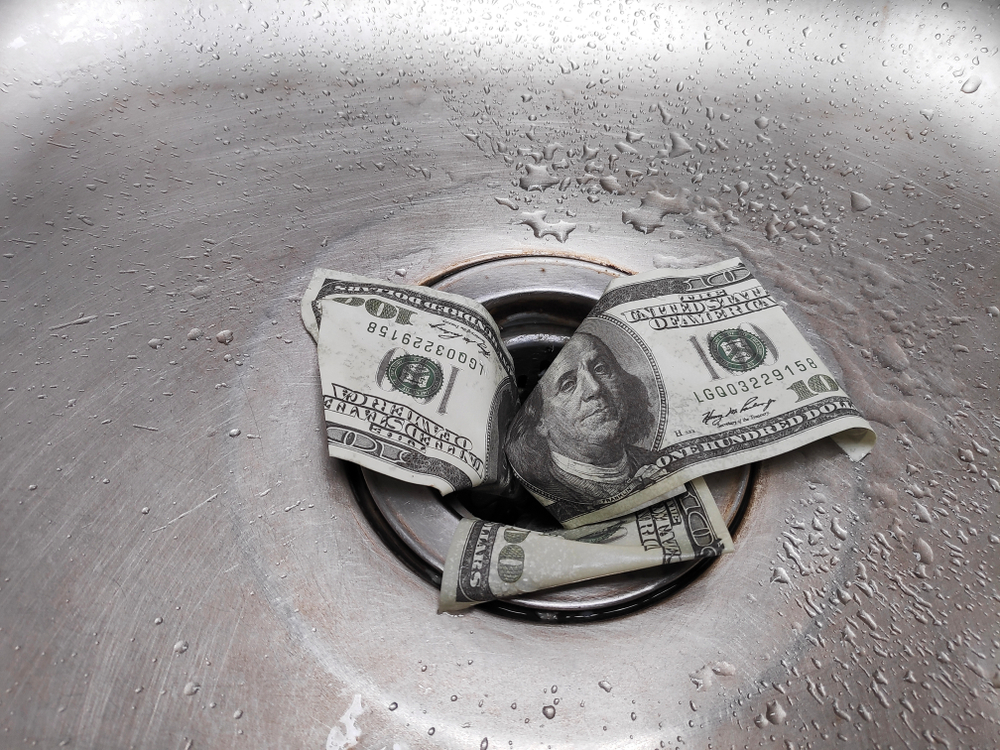In California, married couples are assumed to share all property. Regardless of who purchases or uses the item, it belongs to both spouses. Using a community property system, California attempts to split all of these “marital assets” 50/50 in a divorce.
If there is little money or property to split, one spouse could accuse the other of wasteful dissipation. In this blog, we will explain what this accusation means, explore its consequences, and offer defenses against this allegation.
What is Wasteful Dissipation?
Wasteful dissipation is the act of wasting money just before a divorce. It is a willful, intentional act. Essentially, one partner tries to dwindle the marital assets, hoping to leave the other with little left over.
There are many reasons people engage in wasteful dissipation. Divorce causes ugly feelings and uglier behaviors. Sometimes, one partner blows all the money purely out of spite. They may also attempt hiding money for themselves. Perhaps they empty their accounts, placing the money elsewhere, planning to retrieve it later.
Wasteful dissipation can also happen during the marriage, before the decision to divorce. You could be accused of foolishly spending the family’s money and hiding this behavior. For instance, your spouse could claim that you lost money by gambling, or they could accuse you of spending money on lavish gifts for your secret lover.
Consequences of Wasteful Dissipation
Remember, California courts attempt a 50% split of all marital assets in a divorce. This includes savings, property, and debt. If your spouse accuses you of purposely depleting those assets, that split could become unequal. Your spouse could receive a greater amount of the assets, or you could be shouldered with more debt. Both could happen, depending on the circumstances.
Defenses Against Wasteful Dissipation
Remember that when a divorce goes to court, it is a legal trial. As such, it operates much like a civil lawsuit. There can be claims that require proof, evidence, witnesses, and so on. If your spouse accuses you of purposely squandering assets, you need to work on a good defense with your lawyer. Here are two effective defenses against a wasteful dissipation claim.
The Timing Doesn’t Add Up
A wasteful dissipation claim is often supported by the timing. Guilty parties often start dumping money when the marriage becomes insoluble. Regardless of whether you were irresponsible with spending, the timing of your spending is important to your case.
If you began spending more when the marriage was strong, you can use this as evidence of your innocence. Perhaps your spouse was unhappy about this spending, but if it does not coincide with the crumbling of the relationship, you can use this fact in your defense.
Your Spending Was Done in Good Faith
Perhaps your record does show a sudden rise in spending, and it happened when the marriage began to crumble. Even so, it’s important to explain why you spent this money.
Maybe you dumped a good deal of money into your debt. Even if you were the main contributor to that debt, it is still a marital asset. Your spouse would be forced to deal with at least half of it after the divorce. You can explain to the court that, by paying down the debt, you were trying to make things easier on everyone post-divorce.
By opening the books and showing the court exactly where you spent your money, you can debunk claims of gambling, frivolous spending, hiding funds, etc.
If you’re concerned that your spouse may accuse you of wasteful spending, contact our firm today. We can offer you a free consultation, and we may be able to offer suggestions for your next steps. Call us now at (916) 299-3936, or reach out online.


